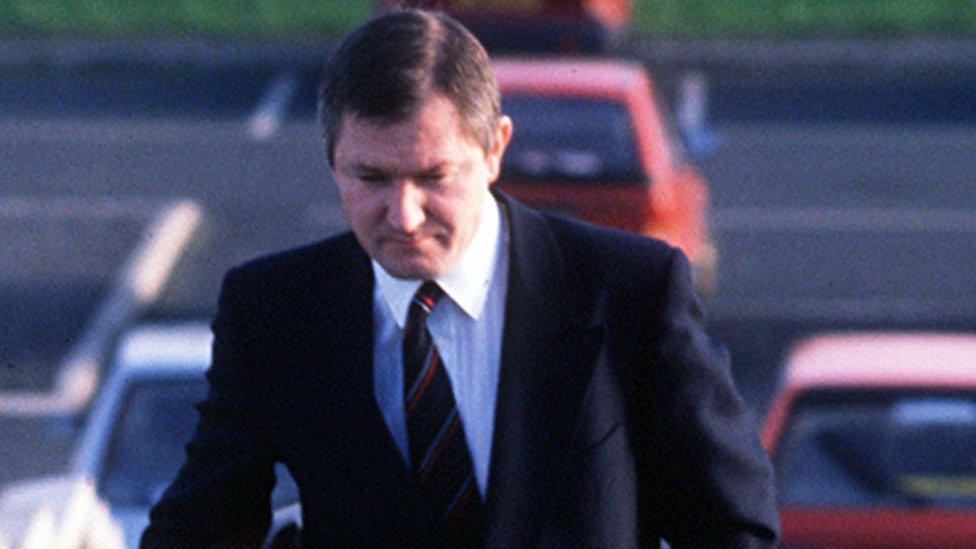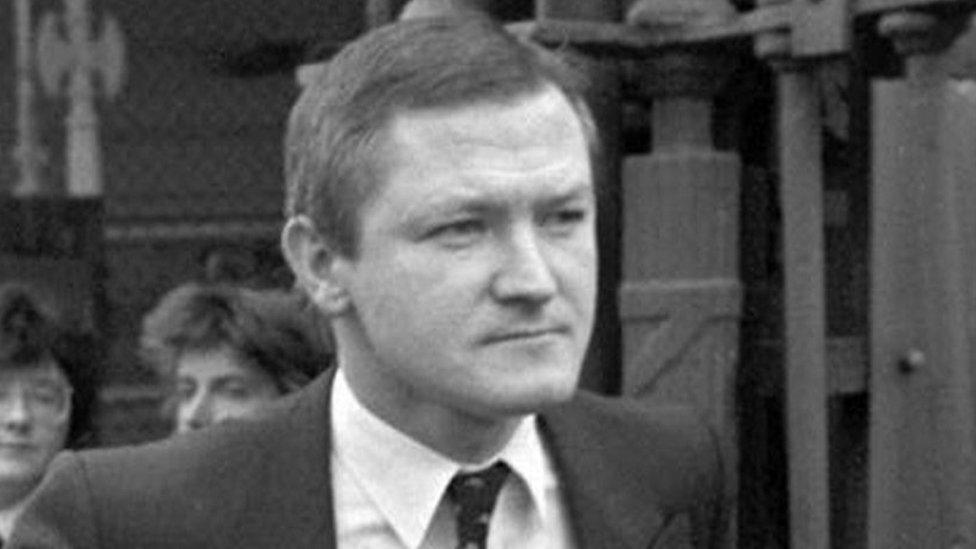Pat Finucane: Brandon Lewis 'entitled to wait over Finucane inquiry'
- Published

Pat Finucane was shot dead in his north Belfast home in 1989
Brandon Lewis cannot be held legally "culpable" for not establishing a public inquiry into solicitor Pat Finucane's murder, a court has heard.
Counsel for the NI Secretary argued he is entitled to await the outcome of police reviews which go towards investigative obligations the government is under.
Judgment was reserved in a challenge mounted by the murdered lawyer's widow.
Mr Finucane was shot dead at his north Belfast home in February 1989.
Geraldine Finucane is seeking to judicially review Mr Lewis for deciding against ordering a public inquiry into events surrounding the killing, claiming it breached her human rights.
Mr Finucane, 39, was shot dead by Ulster Defence Association (UDA) gunmen in front of his wife and three children.
His family have campaigned ever since for a public inquiry to establish the full scale of security force collusion in the murder.
In February 2019 the UK's Supreme Court held that previous probes failed to meet standards required by Article 2 of the European Convention on Human Rights.
Since then, Mrs Finucane has been locked in further legal battles against the government's response to that ruling.
In November 2020 the secretary of state announced there would not be a public inquiry at that stage because he wanted processes by the PSNI's Legacy Investigations Branch (LIB) and the Police Ombudsman for Northern Ireland (PONI) to run their course.
He has already been ordered to pay £7,500 damages to Mrs Finucane for the excessive delay in reaching that position.
In the current challenge, the widow's lawyers claim Mr Lewis' decision was irrational and unlawful.

Mr Finucane's family have been campaigning for a public inquiry since the murder
The LIB has now finished its work, while the Ombudsman's review will not be completed until at least 2025, the court heard.
It was contended that only a public inquiry into the murder will uncover the true extent of a state-operated policy of "extrajudicial executions".
On day two of the case Paul McLaughlin QC, for the secretary of state, acknowledged the Supreme Court had clearly found a breach of Article 2 but he insisted there was no suggestion of Mr Lewis not accepting those findings or refusing to ever set up a public inquiry after the other investigations are finalised.
"From the secretary of state's perspective, from all the material and information which he gathered about the PSNI and Police Ombudsman processes, it's not culpable on his part to allow those to proceed, where they can at least contribute to Article 2 discharge," the barrister submitted.
He told the court that the police and Police Ombudsman are reviewing any evidential opportunities and potential misconduct respectively.
Mr Justice Scoffield told the court: "I will give judgment whenever I can."
Related topics
- Published15 April 2021

- Published12 March 2021

- Published30 November 2020

- Published30 November 2020
